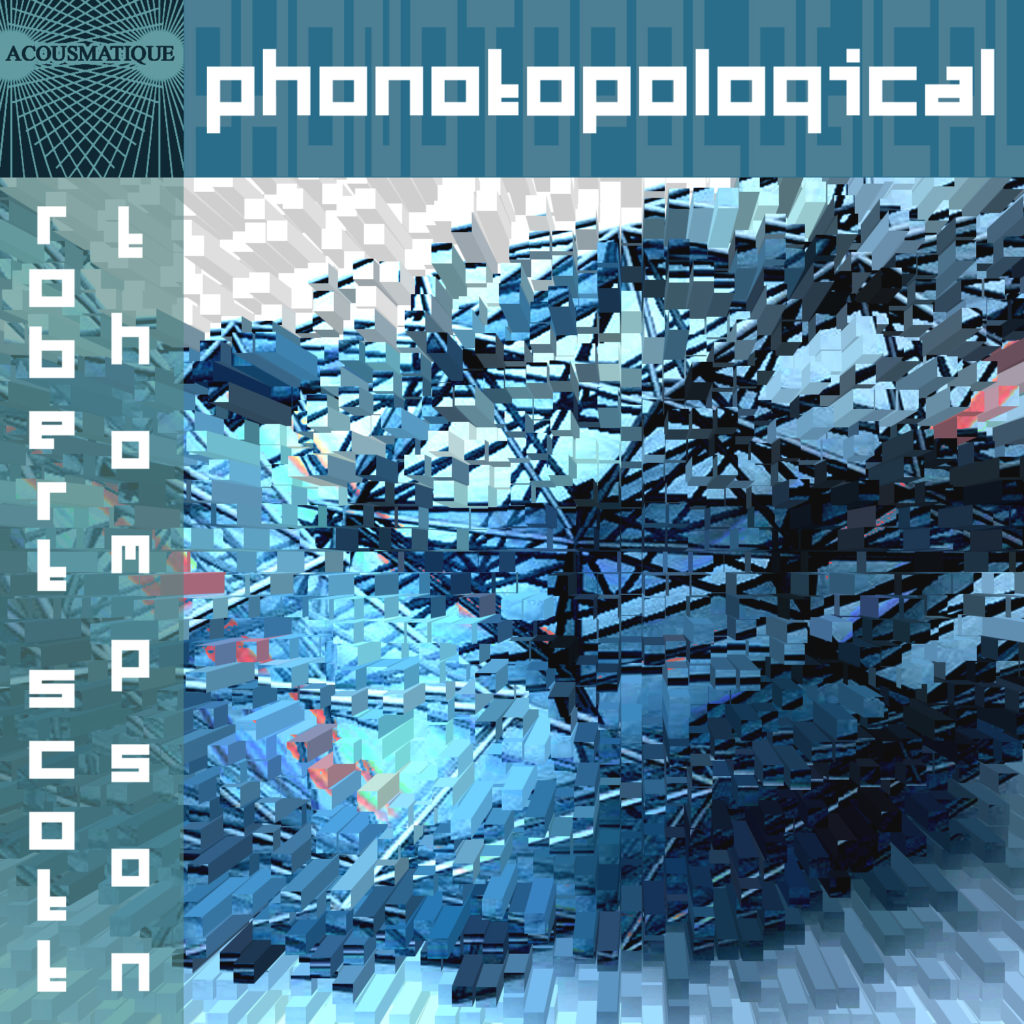
I have been living with Robert Scott Thompson’s new album, Phonotopological, for several months now. And the longer I live with it, the harder it is to write anything about it. For one, it is so complete and satisfying in and of itself that any words about it will seem feeble and impertinent. For two, I fear that the one thing I have come up with to say about it will give a false impression of what the piece is really like. And since I really like the piece, I don’t want to say anything about it that will convey the wrong impression. But too bad. I have promised Robert a review, so here it is.
Although divided into 13 tracks, each with an evocative title, Phonotopological is genuinely one piece, to be played without break, and which progresses from its arresting and captivating opening through a multitude of sonorous adventures to its soft and ethereal ending. Though I hasten to say that the piece does not so much “progress” as it exists. Time passes as it runs its course, of course, but the piece doesn’t really move from one event to another. It is more that Phonotopological is an event and one perceives different elements in it much as one perceives different elements in a painting. It takes less time to take in a painting, may be, but I think that time passing is equally impertinent to one’s experience of either art form. So soon as one is looking at a painting or listening to a piece of music, time ceases to exist—or at least it ceases to impinge.
The best I can come up with for the experience of listening to Phonotopological is to compare it to watching the smooth, brightly colored stones in the bed of a crystal clear stream. The piece as it sounds will remind no one of a stream. The stream is an analogy for how the various layers of sound strike this listener. Just as one is aware of the stream and of the stones and of any fish or insects or plants in the stream, just as the stream seems to be always the same even as it is in constant motion, just as variety and novelty are the real realities as soon as one attends to everything going on, so does this piece present the listening ear with a rich and constantly changing tapestry of color and activity, always the same, always different.
If you have listened much to either Morton Feldman or Eliane Radigue you will easily understand how sameness and variety can co-exist. If not, give this album a listen or three. You’ll see.
Thompson has been at his work for several decades now—since 1976 by his own account—and here’s hoping we can have several more decades of his distinctive sonic magic.
The clip is from the very opening of the piece, from the track entitled “Proximity.” I chose this bit because in preparing for this review it has become one of my favorite openings.
Спасибо
Полезно